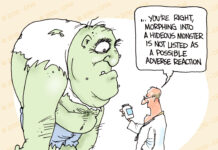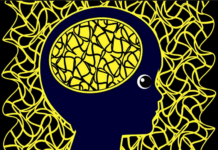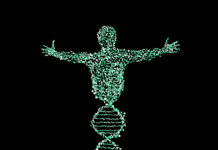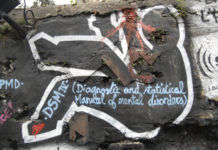Clinical Trials Underreport Harms of Antidepressant Medications
A group of researchers recently found serious bias in the reporting of harm due to adverse events in antidepressant medication clinical trials. They report...
Infants Exposed to Psychotropic Drugs During Pregnancy At Risk
New research published in the July issue of The Journal of Clinical Psychiatry found that the use of mood stabilizers, antipsychotics, antidepressants, and hypnotics during pregnancy is associated with increased health risks to the infant.
Living in an Age of Melancholy: When Society Becomes Depressed
In a recent Ted Talk, “Depression is a Disease of Civilization.” professor Stephen Ilardi advances the thesis that depression is a disease of our modern lifestyle. As an example, Ilardi compares our modern culture to the Kaluli people — an indigenous tribe that lives in the highlands of New Guinea. When an anthopologist interviewed over 2,000 Kaluli, he found that only one person exhibited the symptoms of clinical depression, despite the fact the Kaluli are plagued by high rates of infant mortality, parasitic infection, and violent death. Yet, despite their harsh lives, the Kaluli do not experience depression as we know it.
Western ‘Depression’ is Not Universal
Derek Summerfield, consultant psychiatrist at South London and Maudsley National Health Service Foundation Trust, challenges the assumption that Western depression is a universal condition.
Percentage of Americans on Antidepressants Nearly Doubles
From 1999 to 2012 the percentage of Americans on antidepressants increased from 6.8% to 13%, according to a report published this week by the...
Zoloft Does Not Improve Depression, Even in Severe Cases, Study Finds
Despite their finding, the researchers suggest that SSRIs be given to people who do not meet criteria for depression or anxiety.
Psychotherapy Less Effective for People in Poverty and Those on Antidepressants
A new study finds poorer depression and anxiety outcomes in psychotherapy for people in economically deprived neighborhoods and those on antidepressants.
Violence Caused by Antidepressants: An Update after Munich
The media is now reporting details about the 18-year-old who shot and killed nine and wounded many others before killing himself on July 22 in Munich. My clinical and forensic experience leads to a distinction among people who murder under the influence of psychiatric drugs. Those who kill only one or two people, or close family members, often have little or no history of mental disturbance and violent tendencies. The drug itself seems like the sole cause of the violent outburst. On the other hand, most of those who commit mass violence while taking psychiatric drugs often have a long history of mental disturbance and sometimes violence. For these people, the mental health system seems to have provoked increasing violence without recognizing the danger.
United Nations Report Calls for Revolution in Mental Health Care
In a new report, the United Nations Special Rapporteur on the right to health, Dr. Dainius Pūras, calls for a move away from the biomedical model and “excessive use of psychotropic medicines.”
It is Time to Abandon the Candidate-Gene Approach to Depression
The candidate-gene approach to depression goes unsupported and is likely based on bad science, new research finds.
Initial Trial of Ayahuasca for Depression Shows Promising Results
Ayahuasca found to be effective in treating moderate to severe depression in low-income population.
Use of Antidepressants Linked to Diabetes
Selective serotonin reuptake inhibitors (such as Prozac and Zoloft) are the most commonly prescribed medication for depression. SSRIs have long been associated with an...
Researchers Question Link Between Genetics and Depression
A new study, published in the journal Molecular Psychiatry, found no link between genetics and the occurrence of depressive symptoms.
Researchers: “Antidepressants Should Not be Used for Adults with Major Depressive Disorder”
A new review, published in BMJ Evidence-Based Medicine, concludes that antidepressants should not be used as the risks outweigh evidence for benefits.
New Meta-Analysis: Mindfulness Interventions Effective for Psychiatric Disorders
A meta-analysis of mindfulness-based interventions shows efficacy for treating depression, physical pain, smoking, and addictive disorders.
What’s the Harm in Taking an Antidepressant?
We know that all drugs have side effects. That’s just part of the deal right? But is it really possible that an antidepressant can cause a sane person to act like a cold-blooded criminal?
Still Seeking a Chemical Cure After All These Years: Lauren Slater’s Blue Dreams
Blue Dreams offers a history of the development of psychiatric drugs, but is partly a memoir of the demise of the author's health during the decades she spent on psychiatric drugs. At the time of writing her memoir, Slater is not yet at the point of realizing that the mental health system is not a productive place to go for answers to depression.
My Story of Recovery: Prayer, Community, and Healing
In his book, Prayer is Good Medicine, physician and researcher Larry Dossey maintains that praying for one's self or others can make a scientifically measurable difference in recovering from illness or trauma. It is one thing to understand such a healing intellectually; it is another to know it from experience. Such an experience came to me in the fall of 1996.
Rigorous Study Finds Antidepressants Worsen Long-Term Outcomes
A new study conducted by Jeffrey Vittengl at Truman University has found that taking antidepressant medications resulted in more severe depression symptoms after nine years.
Therapy Gets More Effective Over Time While Antidepressants Decrease in Effectiveness
New review of long-term depression data finds psychotherapy more effective over time whereas antidepressants decrease in effectiveness.
More to Happiness Than Feeling Good, Study Finds
Cross-cultural data suggest that happiness involves feeling the emotions one deems as right, in accordance with personal and cultural values.
The Effects of Antidepressant Exposure Across Generations: An Interview with Dr. Vance Trudeau
Dr. Vance Trudeau discusses his study's finding that antidepressants may have far-reaching, adverse effects that last up to three generations.
Dehumanization Linked to Poorer Mental and Physical Health
A new review finds that dehumanizing language, including self-dehumanization, is connected to anxiety, depression, and disordered eating.
Decontextualized Depression and PTSD Diagnoses Fail Indigenous Communities
A case analysis of an American Indian woman illustrates how the DSM diagnostic criteria misrepresent the lives of indigenous people.
Now Antidepressant-Induced Chronic Depression Has a Name: Tardive Dysphoria
Three recently published papers, along with a report by a Minnesota group on health outcomes in that state, provide new reason to mull over...




























